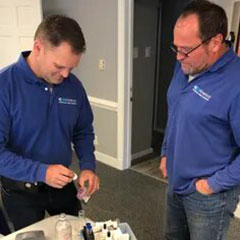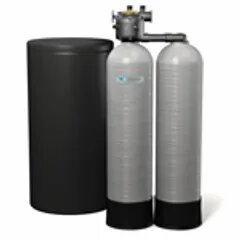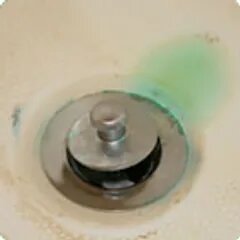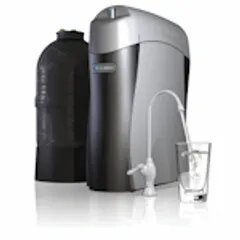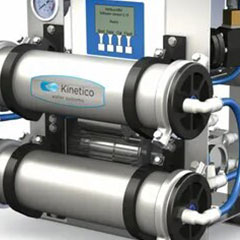Why Regular Water Testing Matters
Clean and safe drinking water is essential for our health and well-being. We rely on it for hydration, cooking, and various household activities. However, it’s not always enough to rely on the appearance and taste of water to determine its quality. Regular water testing is a crucial practice that ensures the water you consume and use is free from contaminants and safe for you and your family. In this blog, we’ll explore the importance of regular water testing and why it should be a part of your routine.
Understanding the Need for Water Testing
Water may appear clear and taste fine, but it can still contain harmful contaminants that are invisible to the naked eye. These contaminants can pose health risks when consumed over time. Here are some key reasons why regular water testing is essential:
- Health and Safety: The primary reason for water testing is to protect the health and safety of those who use the water. Contaminants like bacteria, viruses, lead, chemicals, and heavy metals can cause a wide range of health problems, from gastrointestinal issues to neurological disorders.
- Early Detection: Regular water testing allows for the early detection of potential problems. Identifying issues promptly can prevent health crises and avoid costly treatment measures.
- Environmental Impact: Monitoring water quality is crucial for preserving the environment. Contaminated water can harm aquatic life, damage ecosystems, and disrupt the balance of local environments.
- Compliance with Regulations: Many areas have regulations in place to ensure the safety and quality of drinking water. Regular testing is necessary to meet these requirements and avoid legal consequences.
- Peace of Mind: Knowing that your water is safe and free from contaminants provides peace of mind. It allows you to use water for various purposes without worrying about potential health risks.
Types of Water Contaminants
Water contaminants can come from various sources and have different characteristics. Here are some common types of water contaminants that regular testing can detect:
- Microorganisms: Bacteria, viruses, and parasites can enter the water supply through human or animal waste, causing waterborne diseases.
- Inorganic Compounds: Heavy metals like lead, arsenic, and mercury, as well as minerals like fluoride and nitrates, can leach into the water from soil, industrial processes, or plumbing systems.
- Organic Compounds: Pesticides, herbicides, industrial chemicals, and volatile organic compounds (VOCs) can contaminate water sources.
- Disinfection Byproducts: Chlorine and other disinfectants used to treat water can react with organic matter to form harmful byproducts.
- Radon: This radioactive gas can enter water from the ground and pose a health risk when ingested or inhaled during showering.
- Sediments: Sand, silt, and other particulate matter can affect water quality, clog pipes, and damage appliances.
The Benefits of Regular Water Testing
Now that we understand the importance of water testing, let’s explore the benefits of making it a routine practice:
- Health Protection: Regular water testing ensures that you and your family are not exposed to harmful contaminants. It helps you address potential health risks proactively.
- Detecting Infrastructure Issues: Testing can reveal problems in your plumbing or water supply infrastructure, such as lead pipes or deteriorating well casings.
- Environmental Conservation: Monitoring water quality helps protect the environment by preventing pollution and minimizing the impact on aquatic ecosystems.
- Legal Compliance: Regular testing helps ensure that your water supply meets local regulations and compliance standards.
- Preservation of Property: Identifying water quality issues early can prevent damage to plumbing, appliances, and fixtures caused by corrosive or contaminated water.
- Customized Solutions: If testing reveals specific contaminants in your water, you can take targeted actions to address the problem. This may include installing water filtration systems or using treatment methods tailored to your needs.
When and How Often to Test Your Water
The frequency of water testing depends on various factors, including your location, the source of your water, and potential contamination risks. Here are some general guidelines for when and how often to test your water:
- Private Wells: If you rely on a private well, it’s recommended to test your water at least once a year for common contaminants like bacteria, nitrates, and other chemicals. Additionally, test after any major system changes, repairs, or incidents that could affect water quality.
- Public Water Supply: If you receive water from a public water system, your water provider is required to perform regular testing and provide you with annual Consumer Confidence Reports. However, if you have concerns or notice changes in water quality, consider independent testing.
- Selling or Buying Property: If you are selling or buying a property with a private well, it’s advisable to test the water as part of the transaction process.
- After Natural Disasters: After a natural disaster like a flood, hurricane, or earthquake, it’s essential to test your water source for potential contamination.
- Visible Changes or Odors: If you notice changes in the taste, odor, or appearance of your water, or if you experience health issues that could be related to water quality, seek immediate testing.
- New Construction or Plumbing Work: Whenever you install new plumbing or make significant changes to your water system, consider testing to ensure the new infrastructure doesn’t introduce contaminants.
Conclusion
Regular water testing is a vital practice for safeguarding your health, preserving the environment, and maintaining the safety and quality of your water supply. By staying informed about the potential risks in your area and testing your water accordingly, you can enjoy the peace of mind that comes with knowing your water is clean and safe for all your needs. Remember that professional testing is the most reliable way to assess your water quality, so consider consulting with a certified laboratory or water testing service for accurate results and expert guidance.

